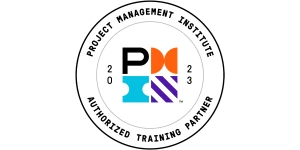Everything You Wanted to Know About Kaizen Philosophy
The philosophy of Kaizen has many facets, and the basic idea behind the philosophy involves improvement and change. This improvement ties into the success and competitiveness of an organization. Let’s see how?
What’s in a Word
Kaizen is a Japanese word that means change for the better. When applied to an organization this change means change that provides an improvement, typically, in a process used by the organization. As a philosophy Kaizen involves a culture where:
- Individuals do not judge and do not blame
- Groups practice systemic thinking
- Everyone has a focus on results and processes
With the philosophy and its application to organizations and businesses the approaches may not involve money. The approaches do involve continuous improvement and a focus on process.
A little about the History
Originally, several Japanese businesses implemented Kaizen within their organizations and practices shortly after World War II with Toyota being an example of a business using Kaizen. The application of Kaizen to organizations and business practices has since grown throughout the world.
In the book “Kaizen: The Key to Japan’s Competitive Success” author Masaaki Imai introduced to the West in 1986 the idea of applying continuous improvement and Kaizen to business.
Today, many organizations throughout the world recognize Kaizen as a way to get a competitive advantage that is long term. Kaizen still promotes these principles:
- Manage with facts and data
- Good results come with an effective process
- Use first hand knowledge
- Correct problems at their root
- Kaizen applies to everyone
- Working as a team produces the best results
Some Mis-perceptions
A small change can make a big impact on a group. That is one idea behind Kaizen but the small changes should be continuous and accumulative.
This series of small changes can make a big change. The misperception is that Kaizen applies only to small changes. Kaizen does apply to small changes but it also applies to big changes over time.
Kaizen can also mean a big change as in transformation. If management starts a project of transformation through Kaizen this can mean a big change on every level of the organization.
Groups where Kaizen applies
While Kaizen at one time applied primarily to industry and manufacturing, now it applies to all kinds of groups.
When implemented right, Kaizen applies to all employees. This includes at a factory, as an example, an assembly line worker as well as top management. The process of continuous improvement impacts all employees. It also impacts all functions. This can include finance, purchasing, and logistics.
Outside of industry, we see today Kaizen also applies to a variety of groups including:
- Banking
- Coaching and sports
- Education
- Government
- Healthcare
- Therapies
How waste and Lean fit in
Kaizen as a philosophy has an aim to remove waste. This is a tie in to lean manufacturing with a similar goal. With the overall philosophy of improvement in Kaizen we see not only the ideas of lean manufacturing and elimination of waste, we see two approaches to achieving goals. These two include flow and process.
Flow Kaizen refers to improvement of production. This can include reorganizing production flow plus the flow of materials and even information. In addition, flow Kaizen can refer to reorganization of an entire group or company. Imagine a reorganization from top-down management with a huge hierarchy to a flat organization and you can see an application for great change.
Process Kaizen refers more to an individual or work station not an entire flow. How you do your job could be involved. This could mean how you work with your tools, store them, and maintain them. Anything dealing with your particular job could apply here.
Let’s Review
We just looked briefly at the Kaizen philosophy of continuous improvement. The philosophy started in Japan then grew worldwide. It also started with industrial applications and grew to other applications.
Let’s remember that KAI means change and ZEN means good as we see at the Kaizen Institute site at https://www.kaizen.com/ so Kaizen involves continuous change that is good.
Stop by and contact us at 6Sigma.us and find out how we can positively help you plan and change the culture and operations of your organization. We offer Green Belt and Black Belt training programs, as well as a Master Black Belt program.
SixSigma.us offers both Live Virtual classes as well as Online Self-Paced training. Most option includes access to the same great Master Black Belt instructors that teach our World Class in-person sessions. Sign-up today!
Virtual Classroom Training Programs Self-Paced Online Training Programs






